Our successfully completed projects.
The Ustinov Foundation has supported, initiated and funded a large number of projects over the last few years. To gain an insight into the foundation’s past work or just to learn about the variety of projects funded, it is worth taking a look at our project archive.
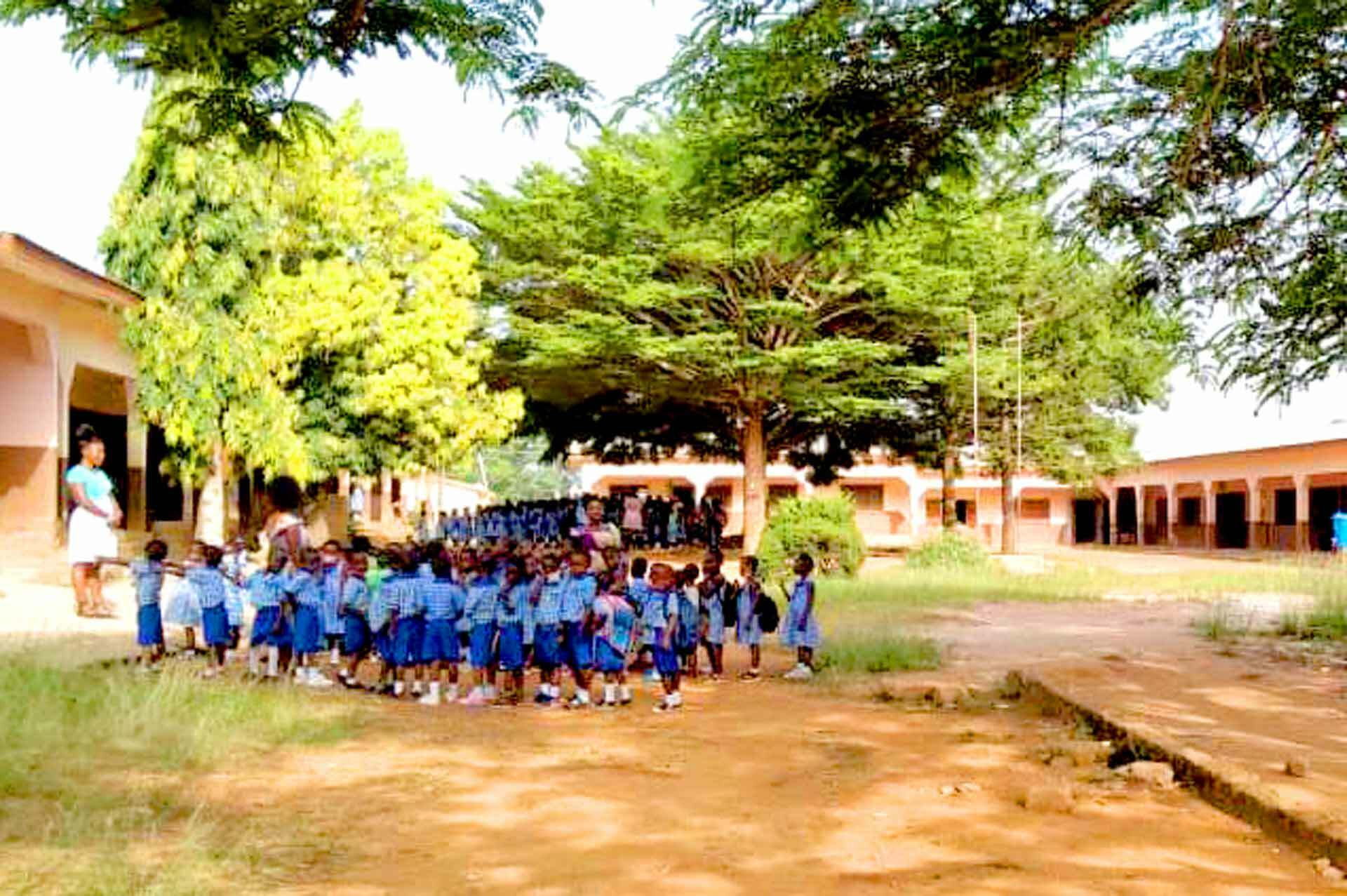
Ghana: St. Joseph`s Nursery & School
2022
Creating opportunities for a better future
The Sir Peter Ustinov Foundation supports St. Joseph’s Nursery & School in Ghana by paying the school fees for 20 children between the ages of two and five. This commitment ensures that the children have access to education as well as food, school materials, transportation and school clothing. The Toni Garrn Foundation, which has been working with the school for many years, is helping to improve learning conditions, including the redesign of classrooms, toilets and the schoolyard. Together, these efforts ensure that the children have a comprehensive opportunity for education and a self-determined life.
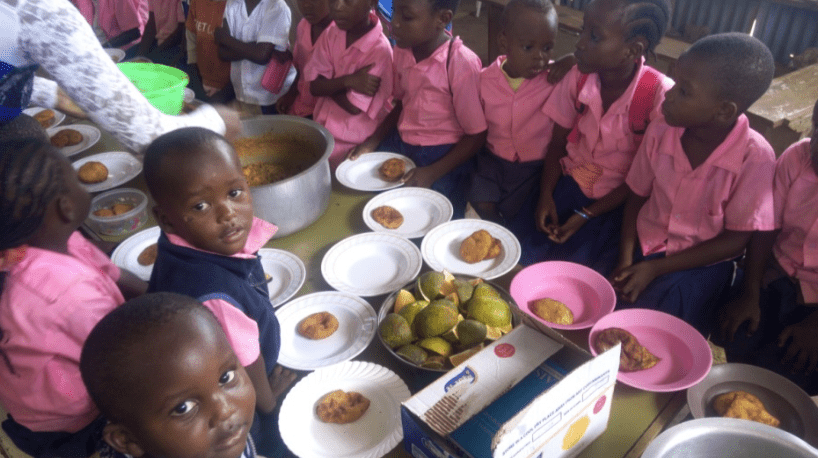
Mombasa, Kenya: Happy Dream ECD School
2017 – 2023
Creating access to education for socially disadvantaged children
The Sir Peter Ustinov Foundation supports the “Happy Dream” Early Childhood Development (ECD) school in Mombasa, Kenya, giving children from the poorest backgrounds access to education and basic care. In partnership with SOLidarity with WOmen in DIstress (SOLWODI) Deutschland e.V., around 75 children are supported. The project provides school meals, teachers and support for the transition to elementary school. Hygiene training improves the children’s health, while counseling sessions help families to improve their economic situation. Close cooperation with local health centers ensures comprehensive medical care. In addition to promoting education, the project strengthens families and the local community.
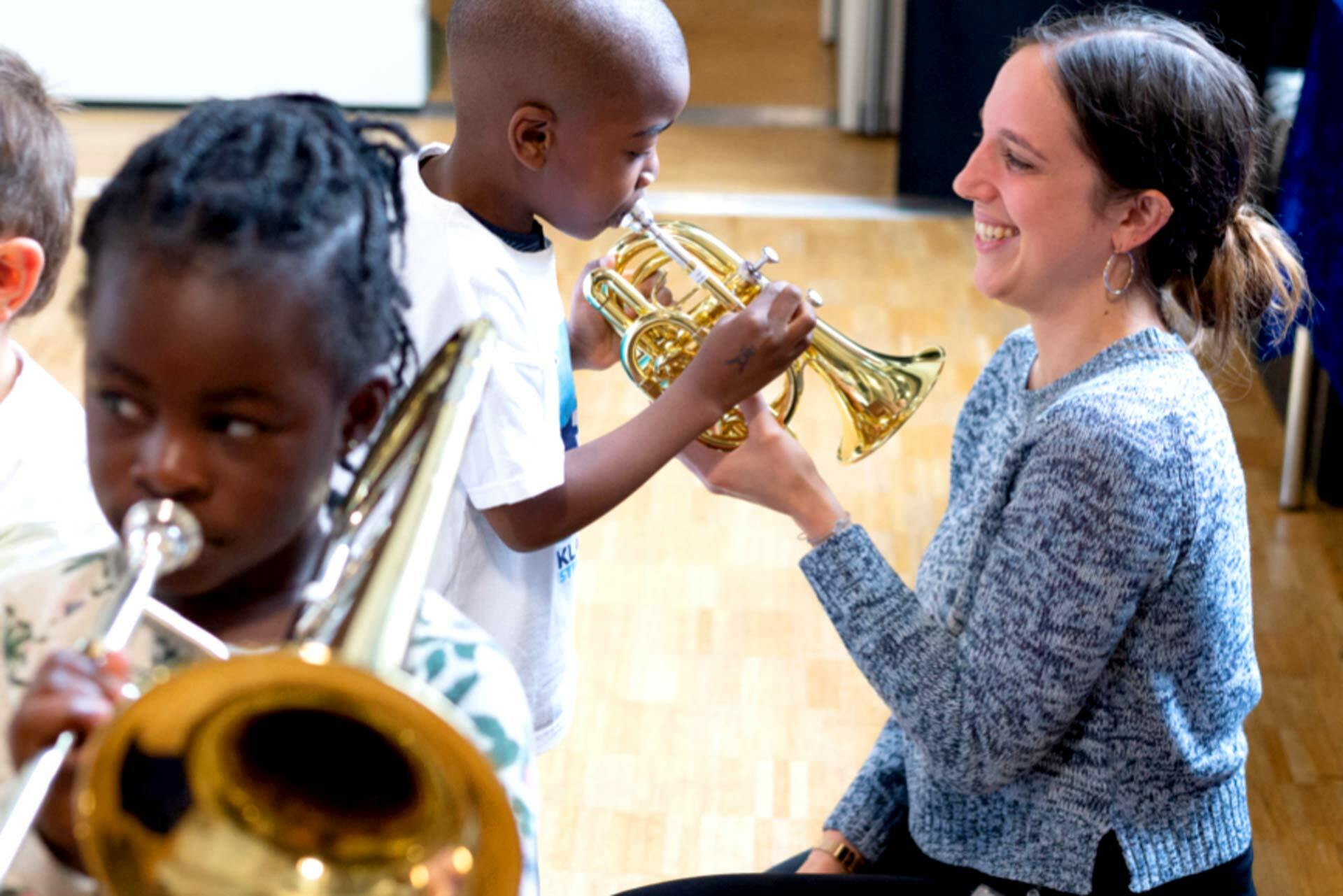
Hamburg, Germany: Klangstrolche, Kultur Palast Hamburg Foundation
2019-2023
Music for every child
With the “Klangstrolche” project, the Kultur Palast Hamburg Foundation gives over 2,000 socially disadvantaged children in the Billstedt district a future full of music and hope. Supported by the Sir Peter Ustinov Foundation, the program opens up the wonderful world of music to even the youngest children aged six months to six years. Here, children discover their talents, develop their potential and experience how music becomes a common language that bridges cultural differences. The specially developed, language-independent International Music Education (IME) method reflects the colorful diversity of the district and ensures that every child is heard. Through regular concerts, inspiring workshops and the dedicated training of educators and volunteers, a community is created that not only grows together musically, but also humanly.
also grows together as people.
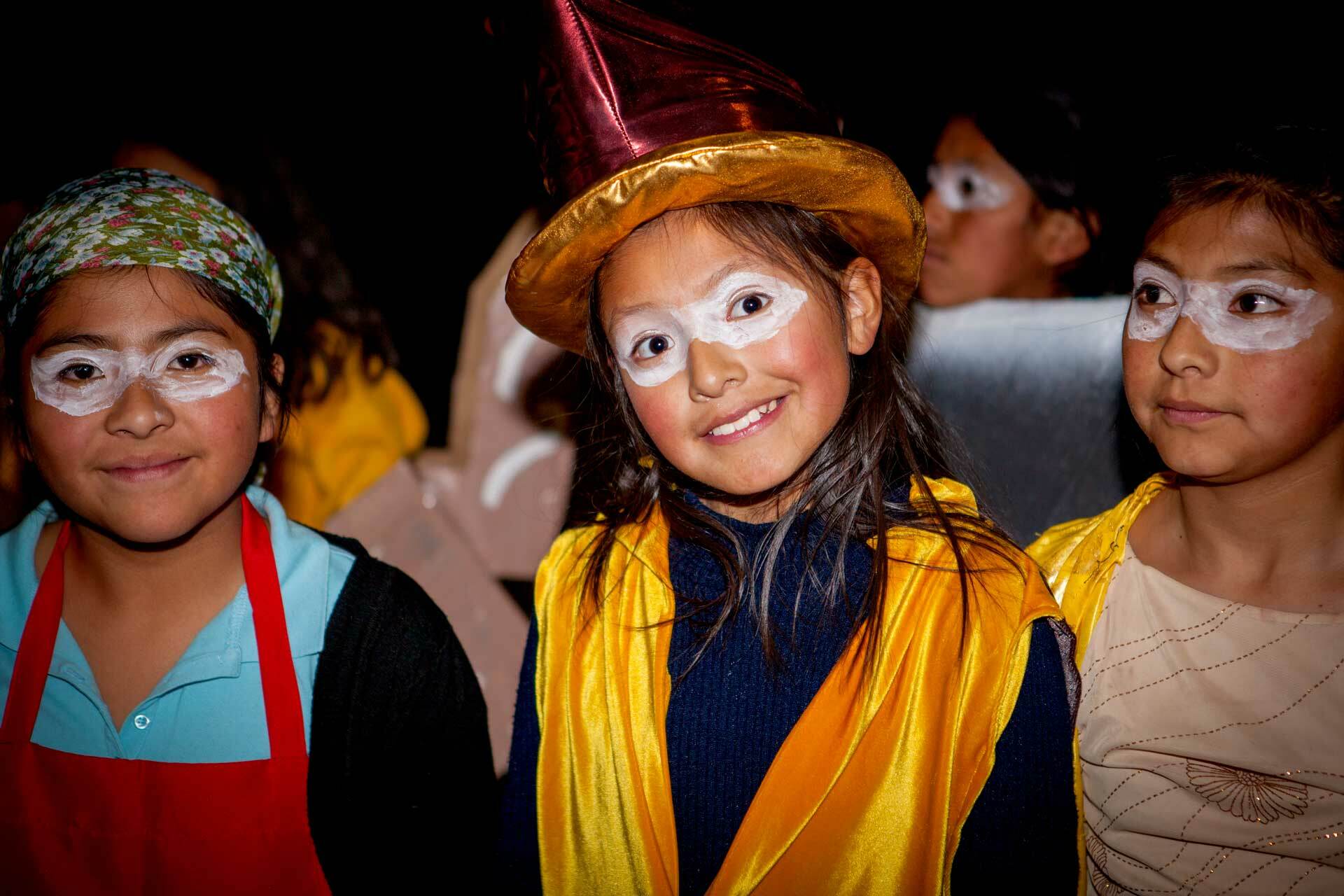
Bolivia: Mobile Art School, COMPA Association
2019-2022
A mobile art school for El Alto and Achocalla
Thanks to the support of the Sir Peter Ustinov Foundation, the COMPA association has been bringing art and creativity to children and young people in El Alto and Achocalla, Bolivia, since 2019. This dedicated project reaches around 5,000 to 11,000 children every year, who often face challenges in their everyday lives. The mobile art school gives them the opportunity to discover and develop their creative talents in a safe and supportive environment. COMPA, which was founded in the late 1990s, stands for more than just art – it is
a movement that gives children a voice and supports them in their development. A particular highlight is the Teatro del Bolsillo festival, which celebrated its 20th anniversary in 2019. This festival, the largest in Bolivia, offers young artists a platform to showcase their passion and develop artistically. COMPA’s mobile art school is not only a place of education, but a place of hope and inspiration that helps children to realize their dreams and build a positive future.

Ustinov Junior Ambassador | Worldwide
2019-2022
Ambassador of the future
The Sir Peter Ustinov Foundation’s “Ustinov Junior Ambassadors” project supports young talents such as the pupils of the Ustinov Opera School and the Ustinov Theatre School by giving them the opportunity to use their creativity for a good cause. The aim is for these children to use their talents to help other children in need and give something back. The young artists perform at charity events, the proceeds of which benefit both the projects of the Sir Peter Ustinov Foundation and children’s aid projects of friendly organizations. Sophie Schwerthöffer is an outstanding example of the success of this program. As an exceptional singing talent, she was appointed “Ustinov Junior Ambassador” in October 2014. She had her first big stage performance at a charity concert for children in Bangladesh. In 2016, she impressed at the ceremony to mark the 70th anniversary of the CDU-NRW in Cologne, where she performed in front of former Federal Chancellor Angela Merkel and 400 delegates. She dedicated her moving performance to children on the run worldwide. Sophie donated her fee for the evening to the projects of the Sir Peter Ustinov Foundation and is currently studying singing at the Hanover University of Music.
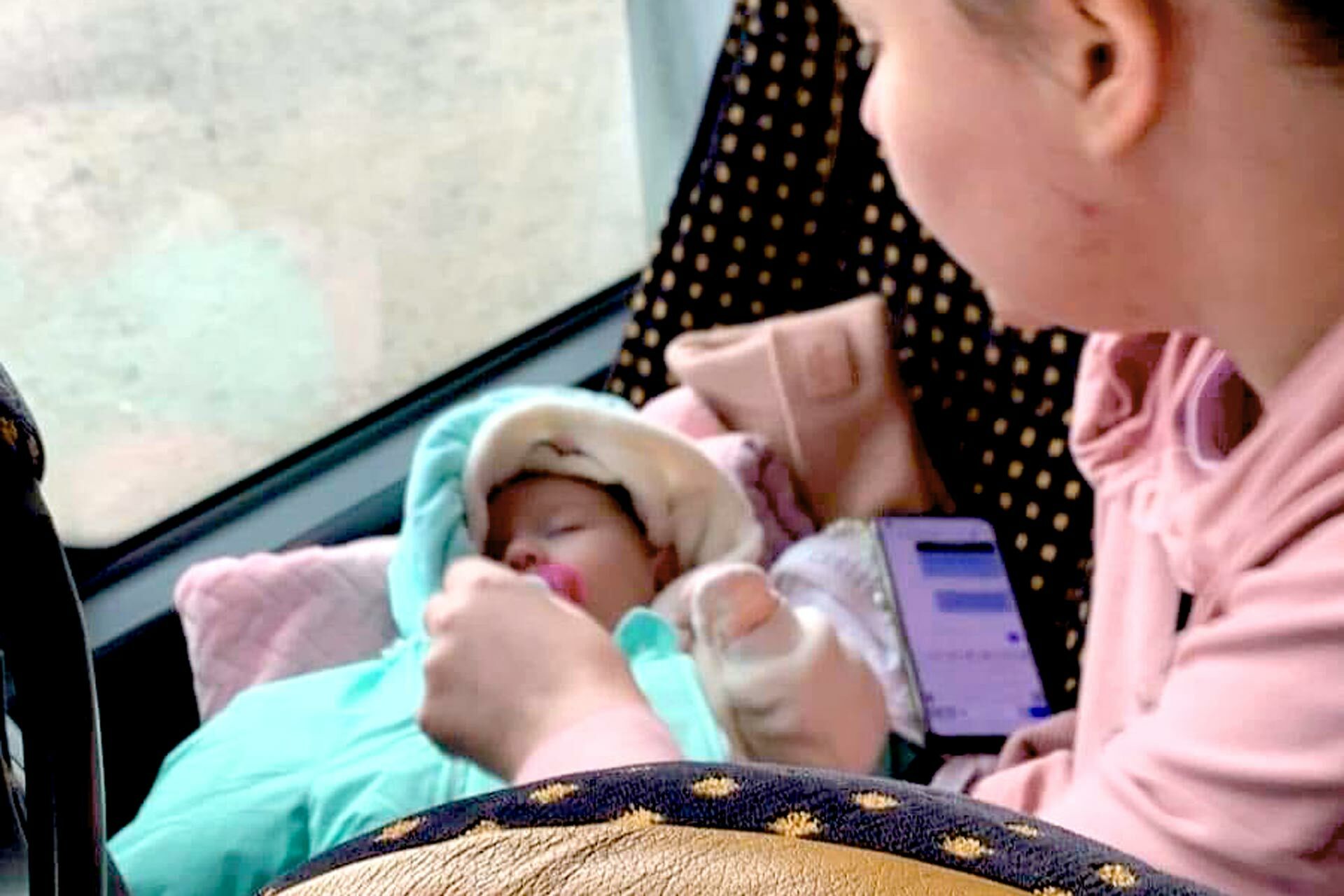
Special project Ukraine Aid I, Children’s Aid for Transylvania e.V. | Ukraine
2022
Our special project on the Romanian-Ukrainian border
In March 2022, the crisis in Ukraine reached its peak when a large number of refugees crossed the border into Romania. Jenny Rasche, the founder of the children’s home in Sibiu (Romania) and our project partner, reacted immediately to the emergency situation. With the support of the Sir Peter Ustinov Foundation, she organized vital transport for the stranded people at the Romanian-Ukrainian border in collaboration with bus driver friends. Together, they ensured that the refugees were able to continue their journey safely to Poland. This special project makes an important contribution to humanitarian aid at an extremely difficult time. classrooms, toilets and the schoolyard. Together, these efforts ensure that the children are given a comprehensive opportunity for education and a self-determined life.
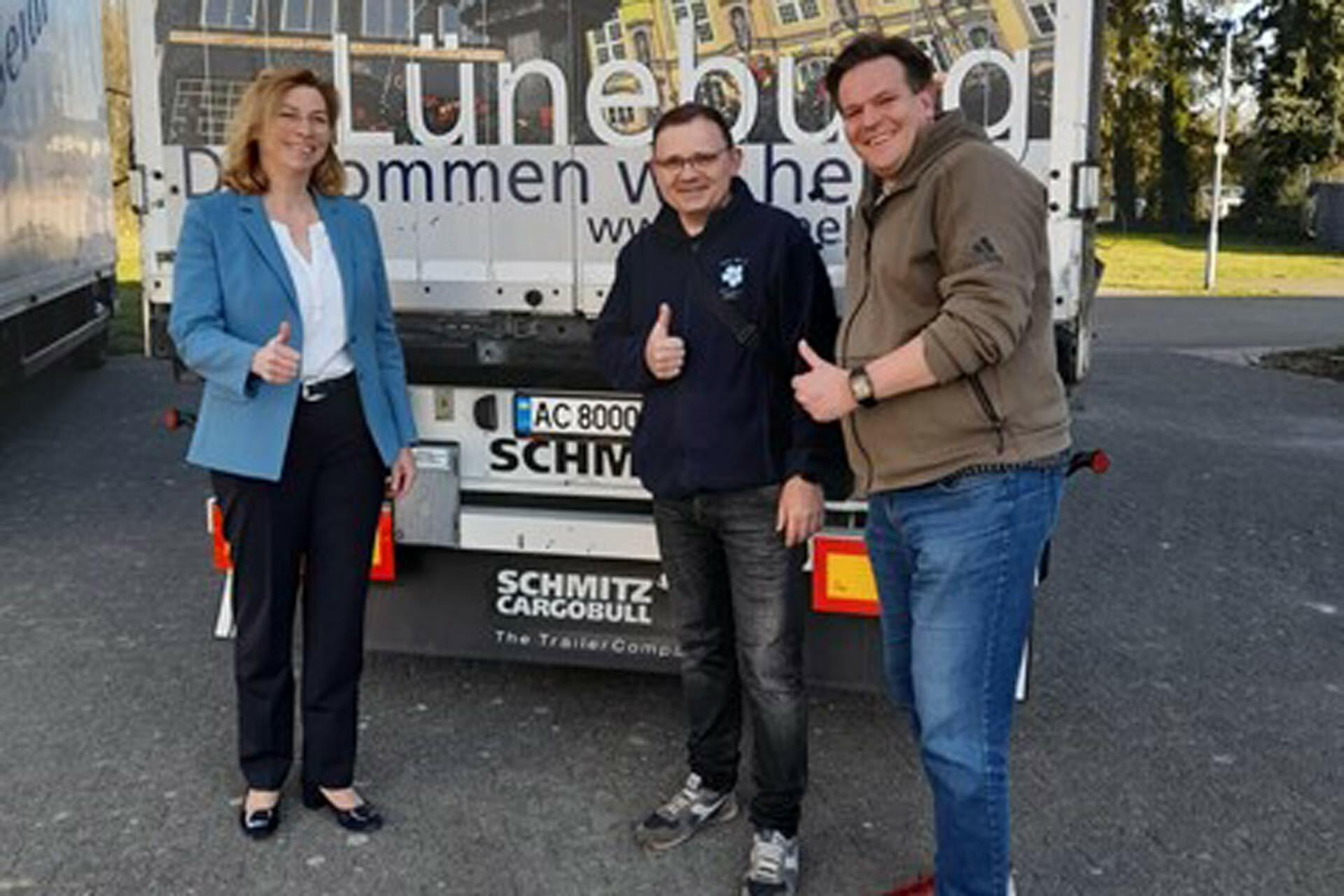
Special project Ukraine Aid II, Erzhausen | Germany
2022
Support for the Ukrainian twin city
As part of the ‘Ukraine Aid II’ project, the Sir Peter Ustinov Foundation is involved in a regional initiative in the Hessian community of Erzhausen. This community shows remarkable commitment to its Ukrainian twin town Ivanychi. Thanks to the support from the foundation, several refugees have already been accommodated in local host families. In addition, numerous donations in kind have been collected and organised for transport to Ivanychi, which is located near the Polish border. Further aid campaigns and humanitarian missions are planned for the coming weeks in order to continue to provide targeted support and help those in need.
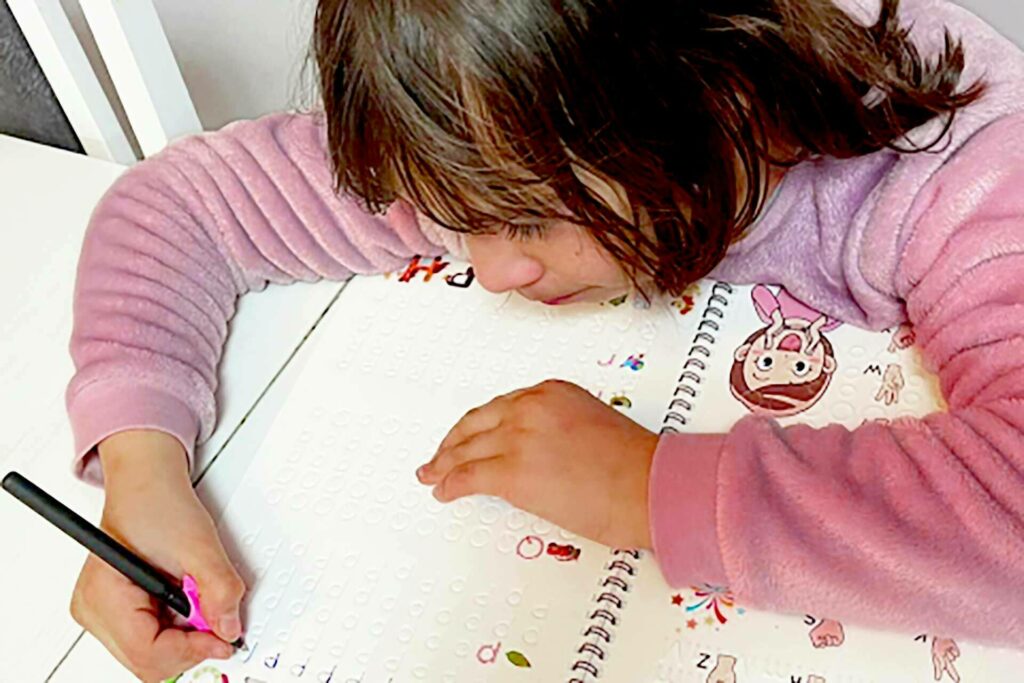
Children’s House Sibiu, Children’s Aid for Transylvania | Romania
2022 – 2023
Hope and smiles for children with disabilities
Since the beginning of 2022, the Sir Peter Ustinov Foundation has been supporting the Speranta si Zambet association, which was founded in 2003 by German social worker Jenny Rasche. The name of the association means ‘hope and smiles’ and reflects the aim of offering children with disabilities in Romania a better future. Six children with mental and psychological disabilities currently find a loving home at the Sibiu children’s home. They live in a family-like environment, receive individualised support and attend a special school. The children’s home is a valuable alternative to state homes and promotes acceptance of children with disabilities in the community. An expansion to twelve children is planned, and in the long term these children will continue to be cared for in home-like structures or supervised residential groups.
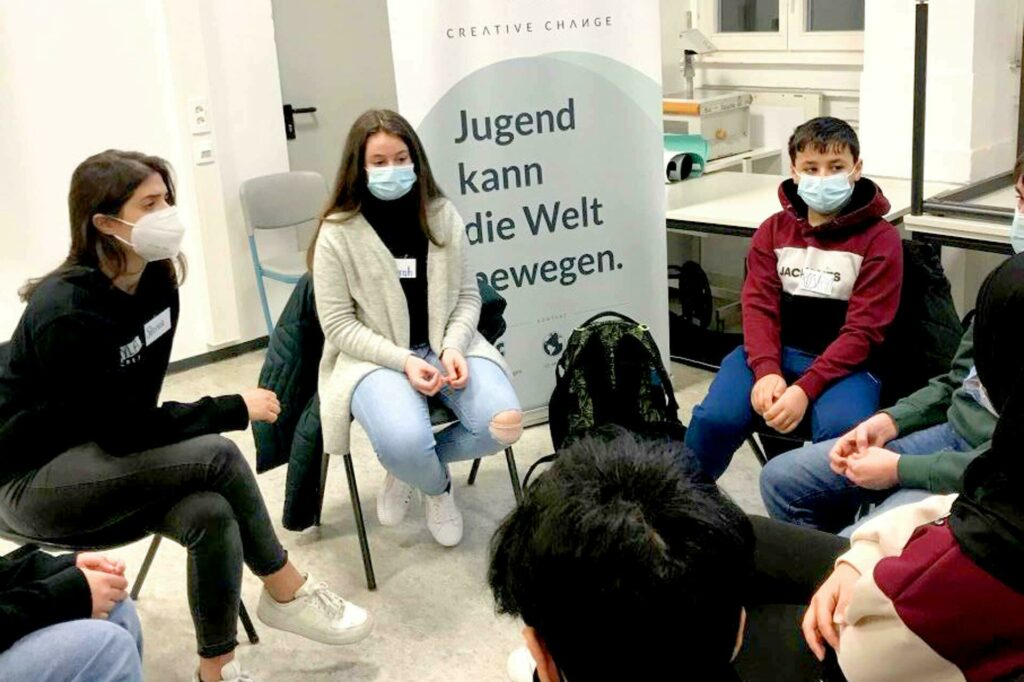
ActNow22, Creative Change e.V. | Germany
2022
Against the prejudices
The ActNow22 project, supported by the Sir Peter Ustinov Foundation, is dedicated to reducing prejudice and promoting peaceful coexistence. With this project, Creative Change e.V. is pursuing the goal of breaking down prejudices and thus enabling a more harmonious society. ActNow22 is a project week for schools that combines interactive theatre with political education. In 2022, the project was carried out at Ebelfeldschule and Anne-Frank-Schule in Frankfurt. The pupils learnt how to deal with challenges in an entertaining way and developed their problem-solving skills through peer case counselling. The educational theatre method provided a low-threshold approach to complex topics. The children were enthusiastic about the project week, found the four project days very interesting and felt better prepared to deal with the topics covered and to stand up against prejudice.

Kaliningrad, Russia: Jablonka, drop-in centre for street children
1999 – 2008
Small projects with a big impact
Russia’s westernmost major city, the Baltic Sea enclave of Kaliningrad, is still characterised by major social problems. AIDS and tuberculosis rates are high and life expectancy is low compared to other regions in Russia. The Sir Peter Ustinov Foundation supports the Jablonka centre – a drop-in centre for around 300 homeless children in Kaliningrad. Younger children find a permanent home here. Older children who have been living on the streets for some time can come to Jablonka to sleep, eat and wash. The foundation helps, for example, with renovation work, the purchase of furniture and the construction of a greenhouse.

St. Petersburg, Russia: Construction of an orphanage for HIV-infected children
2002 – 2008
A signal against the stigmatisation of HIV-positive children
The first call for help from St. Petersburg reached the foundation in 2002. The old home for AIDS orphans was dilapidated and lacked everything. The foundation pledged its help, supported by many prominent friends and helpers for the good cause, such as Mrs Krone-Schmalz. It was one of Sir Peter Ustinov’s last great wishes that the HIV-infected children should grow up in decent conditions. A new building was planned.
The ground-breaking ceremony did not take place until the end of 2006, when the Russian authorities initially refused to grant planning permission. In 2007, the topping-out ceremony finally took place, the house was furnished and Igor Ustinov presented the Russian doctor Dr Veronin, who looks after the children, with a miniature of the Open Mind statue as a symbol of the Peter Ustinov Foundation for the fight against prejudice. In 2008, with a very successful appeal for donations of furniture and kitchen utensils, the project was completed.

Mumbai, India: Help for ‘cleft’ children
2002 – 2009
Giving a smile for a new life
In India alone, millions of children suffer from a congenital malformation known as cleft lip and palate. In addition to ridicule and marginalisation, the children suffer from physical limitations such as shortness of breath or difficulty speaking and eating.
In 2004, the Peter Ustinov Cleft Centre was opened in Mumbai in collaboration with Professor Dr Hermann F. Sailer, the founder of Cleft-Children International CCI and founder and head physician of the clinic of the same name in Zurich. Since then, the Ustinov Foundation has been supporting the work of the local experts. The children receive free surgery and intensive follow-up care from a speech therapist. In addition, local doctors are supported in their educational work to reduce prejudice against the disease.

Pagman, Afghanistan: Construction of the Peter Ustinov Peace School
2003 – 2013
Education instead of fundamentalism
The Peace School was set up with the help of Afghan employees by Children’s Aid Afghanistan. Mother and child clinics, health centres, orphanages, solar workshops and other projects are intended to offer prospects for a peaceful future in the country. Dr Reinhard Erös, a doctor from Regensburg, and his family have been working with Children’s Relief Afghanistan since 1988.
On 31 December 2003, the construction of the Peter Ustinov Peace School in the province of Paghman, 2,000 metres above sea level north of Kabul, was completed. Classes for 600 girls and 300 boys began in March 2004. The Sir Peter Ustinov Foundation supported Children’s Aid Afghanistan in equipping this school with PCs, a photovoltaic system, the school’s own library and the salaries of the local teachers. Many Ustinov schools have sponsored the Afghanistan Peace School.

Nepal: Production of 1,000 wheelchairs for disabled children
2004 – 2007
A wheelchair brings mobility and perspective
Nepal is home to countless disabled children whose families are too poor to afford a wheelchair. These children usually slide across the floor on planks. They waste away in isolation because they sometimes don’t leave the house for years. A wheelchair changes the life of a disabled child, giving them a zest for life and career prospects. They can attend school and later pursue a career despite their disability. In 2004, the Sir Peter Ustinov Foundation provided Nepalhilfe Aachen with funds totalling EUR 90,000 for 500 wheelchairs. Until 2007, the foundation supported the progress of wheelchair production and the work of an occupational therapist.

Itaquaquecetuba near Sao Paulo, Brazil: Help for street children/The SAMMA Project
2003 – 2011
Support, rules and social warmth for street children
Itaquaquecetuba is a poor neighbourhood in Sao Paulo. Many children live below the poverty line there. The parents lack the money to send their children to school. Together with the Global Harmony Foundation, the Peter Ustinov Foundation makes it possible for children to attend school. The project offers street children aged between eight and 17 a place to go in so-called open houses, where they not only receive regular meals, but also medical care and the opportunity to take part in sporting activities. Through communal activities, the children experience themselves as part of a community and develop cooperative social behaviour as well as a healthy and hygienic lifestyle. Thanks to the support, their lives are given structure and the children find a place in society. The house in Sao Paulo was renovated and refurnished.

Pasthapur, Hyderabad, India: Green School
2003 – 2009
Education and direct help for families in Pasthapur
The area around the city of Pasthapur in India is characterised by drought, unemployment and poverty. The ‘Green School’ project supported families in acquiring and cultivating a piece of land, but focussed primarily on the construction and maintenance of training centres for all age groups. These offered a combination of school lessons and practical vocational training. This enabled young girls in particular to achieve social independence. In 2009 alone, 150 pupils from more than seven villages, some of them far away, were able to attend the lessons on offer thanks to a specially installed bus system. The aid project was supported in collaboration with the Global Harmony Foundation, Lausanne.

Mumbai, India: Construction of the ‘Rescue Centre’
2007 – 2016
Rescue, protection and education for young girls
Thousands of young girls are forced into prostitution in the red light districts of Mumbai under unimaginable conditions. Most of the young girls have been trafficked from Nepal. The Rescue Foundation helps them with rescue missions in which they are freed and then receive medical and psychological care. To help them find a way back into society, they can take part in various education and training programmes and develop prospects for their future. Following the establishment of the Rescue Centre in 2007, the Sir Peter Ustinov Foundation supported the work of the rescuers and carers at the centre alongside Bono Direkthilfe e.V. until 2016.

South Africa, Moshaweng Valley: Children of the KalahariIn cooperation with Frankfurt International School
2007 – 2012
Help for the Tswana
The Moshaweng Valley in the South African Kalahari Desert is one of the poorest regions in the world. The approximately 50,000 Tswana living in this remote and uneconomical region were deported there in 1968 by the former apartheid regime of South Africa, as they had to make way for a major military operation. They now live in 21 villages, with no prospects for the future and in very poor conditions. The Sir Peter Ustinov Foundation has been supporting the local people since 2007. In cooperation with the Early Childhood Development Centres (ECDC), school buildings have been renovated, urgently needed teaching materials have been purchased and the expansion and equipping of school and classrooms has been driven forward. A community centre was built and the drinking water supply and self-sufficiency improved through gardening, among other things. The Sir Peter Ustinov Foundation supported this project in co-operation with Johan van Vuuren, South Africa and Freunde der Kalahari e.V. Oberursel /Annelie Lück-Nassar, the Frankfurt International School and Caritas International.

Aachen, Germany: Pinocchio Children’s Circus
2007 – 2010
Help and happiness for traumatised children
The Aachen children’s circus Pinocchio was founded by Josef ‘Jupp’ Steinbusch, a qualified social worker, and received the Aachen Peace Prize. Every year, the children’s circus travels through war zones to develop circus programmes together with local children. The children’s circus is a hands-on circus for children, where the focus is not on performance, but on the experience of putting together and performing a circus programme. With creativity and solidarity, the children experience peaceful coexistence in fun and joy. The Sir Peter Ustinov Foundation supports the circus’ trips to former European conflict areas such as Bosnia-Herzegovina, Belfast and Romania.

South Africa, Moshaweng Valley: Children of the KalahariIn cooperation with Frankfurt International School
2007 – 2012
Cheerfulness and security against child poverty
Although Romania is now part of the EU, the country is considered the ‘poorhouse’ of Europe. Here, children and their families live in immense poverty, in dilapidated houses without sewerage or electricity. At the day care centre run by the Franciscan Sisters of Salzkotten, they can escape their sad everyday lives. 30 children aged between two and seven from extremely poor families find ideal conditions for playing and learning in this day care centre. They are looked after six days a week and receive hot meals. The outdoor area with new play equipment was also made child-friendly by 2010 and the purchase of a vehicle to transport the children to the day care centre was financed.

Essen, Germany: Ustinov Theatre School/Ustinov Opera School
2007 – 2014
Music connects, opens hearts and strengthens
The Ustinov Theatre School was founded in 2007 as an artistic programme to support children in disadvantaged schools. It aims to provide children of different nationalities with a solid basic musical education. Two third-grade classes at Herbartschule Essen-Katernberg (from 2008 Ustinov-Grundschule Essen), a district with high unemployment, are taught singing and drama/speech, movement/choreography and conversation – in two lessons per week. The children develop strengths and talents, expressiveness, self-confidence and motivation. A large production is rehearsed and performed in front of an audience.
The Ustinov Theatre School Essen was replaced by the Ustinov Opera School at Dr Hoch’s Conservatory in Frankfurt.

Germany: MUS-E programme in schools
2007 – 2013
Cultural diversity as an enrichment of society
MUS-E stands for ‘Music for Schools in Europe’ and was initiated by Yehudi Menuhin and supported by his foundation. As part of MUS-E, artists from the fields of dance, theatre, visual arts and music perform once a week for two lessons during the regular school day with the help of teachers. MUS-E makes it possible to experience cultural diversity as an enrichment of society and helps to build a school culture. The programme aims to give children in disadvantaged schools in particular access to art and culture. The MUS-E programme was initially offered at the Ustinov schools in Monheim and Cologne, and later also at other schools in Germany. Following the insolvency of the Jehudi Menuhin Foundation, the Sir Peter Ustinov Foundation established MUS-E gGmbH.

International: Sir Peter Ustinov Outreach Award for outstanding social commitment
2008 – 2013
Award for international student projects
Since 2008, the Peter Ustinov Foundation has presented the ‘Sir Peter Ustinov Outreach Award’ once a year to selected international schools that have excelled in humanitarian projects for children and young people. Up to four schools from the network of the European Council of International Schools (ECIS) are honoured with the award. In particular, schools in emerging and developing countries that have made exemplary efforts in favour of children and young people and at the same time are committed to combating prejudice and promoting a culture of diversity and mutual respect in an exemplary manner are considered in the selection process.

Mombasa, Kenya, Africa: SOLWODI/SOLGIDI
2008 – 2017
Solidarity for girls in need
The organisation Solwodi e.V. was founded in Kenya in 1985. SOLWODI stands for SOLidarity for Women in Distress and, with the SOLGIDI (Solidarity with Girls in Distress) project, provides education and future prospects as a way out of poverty-related prostitution for girls and women. Many women in Kenya continue to take the path of prostitution to escape poverty. The consequences for their daughters are disastrous: although primary school education is now offered free of charge, many Kenyan girls are still unable to attend school. The Sir Peter Ustinov Foundation supported SOLGIDI’s commitment and its efforts to educate girls and their families on topics such as pregnancy, HIV prevention and healthy eating, in addition to school attendance, through home visits, counselling and discussions.
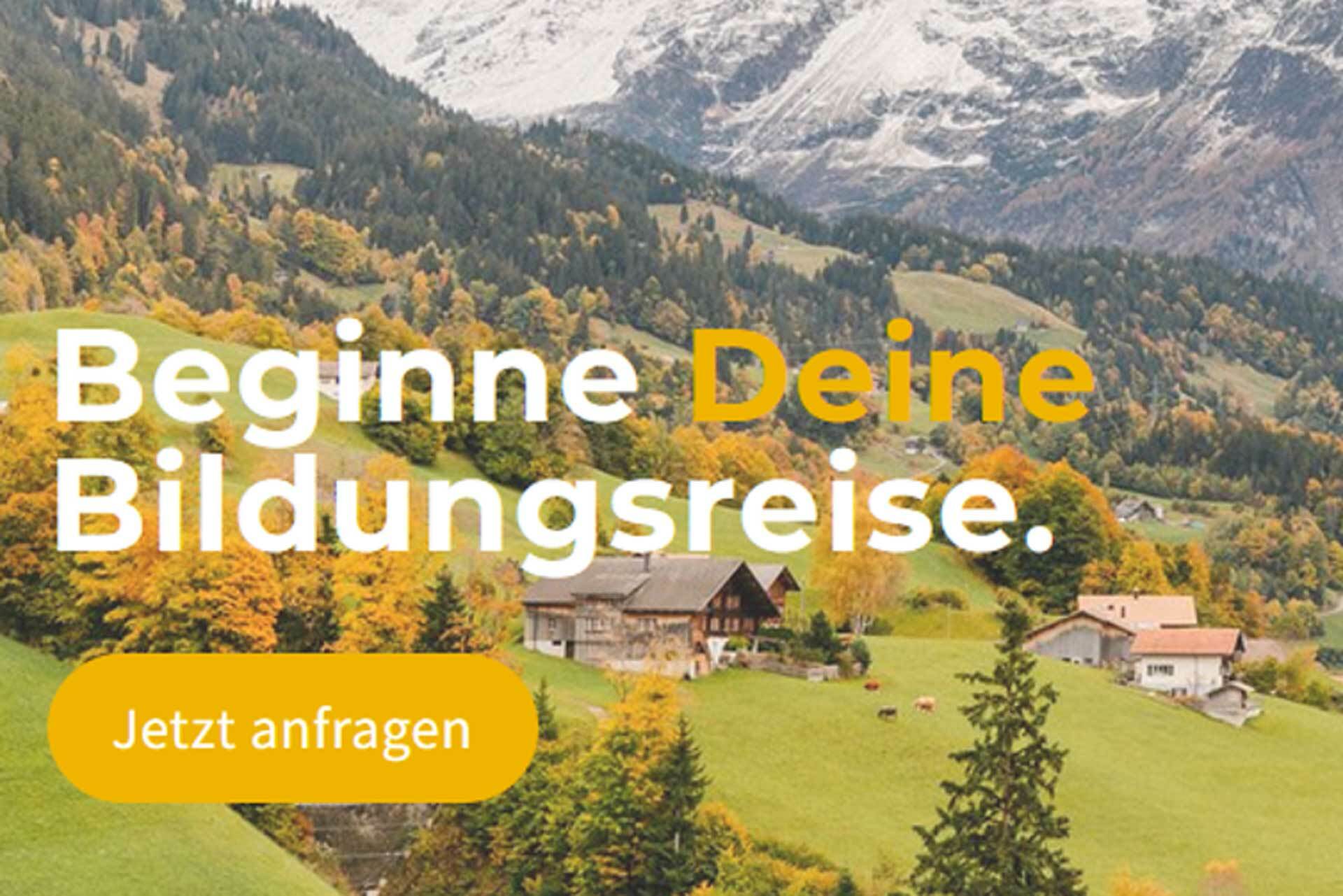
Hasliberg-Goldern, Switzerland: Ustinov Scholarship at the Ecole d’Humanité
2008 – 2011
Learning for life
The Ecole d’Humanité is a renowned boarding school in Switzerland that offers a holistic, international school reform education in English and German. The Sir Peter Ustinov Foundation supported one pupil in the 2008 school year with a full-time scholarship, for the 2009/2010 school year with a grant of 50% and in the 2010/2011 school year with a grant of 25%. Three potential scholarship holders were nominated by the Ecole d’Humanité. The selected scholarship holder was obliged to write an annual report for the board of the Ustinov Foundation and to produce a paper on the life and/or work of Sir Peter Ustinov in each school year for which funding was provided.

St. Petersburg, Russia: Upsala Children’s Circus
2009 – 2017
Hope and a future in a circus community
Circus Upsala is a unique social project in Russia that works with children and young people at risk. But it is no ordinary circus. Upsala circus performances combine acrobatics, juggling, mime, parkour and breakdancing. More than 80 young adults between the ages of seven and 18 come together for rehearsals. The aim of the work is to positively influence the lives and social status of at-risk children and young adults through modern circus, art and creativity. They gain experience and life skills that can open up a better future for them. Together with social pedagogues and trainers, the children are offered an alternative to their dreary everyday lives on the street or in their broken families.

Germany, Schools: Lions Quest “Acting as Adults”
2010 – 2011
Education for Life
Since 1994, the Hilfswerk der Deutschen Lions e.V. has been offering one of the most successful youth development programs in German schools through the Lions Quest project “Acting as Adults.” This program teaches students aged 10 to 14 fundamental social skills. During this crucial phase of their personal development, children are encouraged to volunteer or engage in other forms of social participation. Before the program begins, teachers undergo several days of training to familiarize themselves with the course and project content.

Pune, India: Inclusive Education in Action – IDEA
2009 – 2017
Education and Opportunities for All Children
In 2010, at the invitation of the BMZ (Federal Ministry for Economic Cooperation and Development), the UNESCO International Bureau of Education (IBE), and the Sir Peter Ustinov Foundation, around 80 experts gathered to discuss the causes of disadvantaged children being excluded from quality education. This conference established the goal of implementing projects at five locations across three continents. With the educational project IDEA, the Sir Peter Ustinov Foundation initiated its own sub-project. The goal of IDEA is to prevent school dropouts and offer a second chance to children who have already left school. The local project partner, the IDEA Foundation, helps reintegrate the children into everyday school life with the support of social workers. They train teachers and convince parents of the importance of a good education. Through specialized lessons, the children catch up on missed material and can then attend the appropriate grade level for their age.

Cape Town, South Africa: Salesian Institute
2010
A Refuge for Street Children in Cape Town
The Salesian Institute, established in 1910, was a high school run by the Salesian Order until the 1970s. In response to the apartheid regime, the school—originally accessible only to white children—was closed. Since then, it has become a refuge for street children in Cape Town. The ground floor houses vocational training workshops and a cafeteria, while the upper floor provides overnight accommodation for street children. Both the cafeteria and the hot water supply for the showers were in dire need of renovation, which was carried out with the support of the Federal Ministry for Economic Cooperation and Development (BMZ). Kitchen and cafeteria equipment were acquired, and around 200 to 300 children now receive two hot meals daily. Three solar systems were installed on the roof, providing 1,500 liters of hot water and significantly reducing the institute’s energy costs.

Ethiopia: Project Harar – Rebuilding Faces, Changing Lives
2010 – 2011
A Chance for a Dignified Life
Project Harar, also known under its working name Project Harar Ethiopia, is a UK-registered charity working in Ethiopia. It helps children affected by facial deformities. Initially, the young patients are examined by a doctor as part of the Harar project. Project Harar collaborates with Ethiopian and international specialists and surgeons to treat children suffering from a variety of conditions, giving them the opportunity for normal facial function and a chance for a dignified life within their local community.
The Ustinov Foundation supported Project Harar until 2011, after which it was replaced by the No-Noma project, supported by its partner Winds of Hope.

Essen, Germany: K3 Creative Workshop for Children with Cancer
2010 – 2018
Empowering Art for Ill Children
On the K3 ward of the University Hospital Essen, children suffering from severe cancer are treated and undergo therapy. Once a week, they are visited by an artist who paints and crafts with them, bringing color into the often bleak and frightening daily routine of hospital life. The resulting artworks reflect the strength and energy of the children.

Essen, Germany: Expedition Klassik – Education Program at the Philharmonie Essen
2010 – 2012
Building Bridges with Music
The Peter Ustinov Foundation partnered with the Philharmonie Essen to promote integrative, intercultural encounters with music in both the classroom and the concert hall. Various school classes engaged deeply with a musical theme and then became active themselves by creating their own music. The projects were primarily offered in districts and schools in Essen, characterized by students from migrant backgrounds, economically disadvantaged families, and young people with special needs. This project was supported by the Sir Peter Ustinov Foundation from 2010 to 2012.

Oberhausen, Germany: Children’s and Youth Film Award and Workshops as Part of the Oberhausen Short Film Days
2010
Openness to Cultural and Ethnic Diversity
As part of the International Short Film Days in Oberhausen, a children’s and youth film competition was held, showcasing over forty selected films from nearly as many countries each year. A children’s and youth jury judged the program and selected the winners. Assessing the chosen films helped develop the young viewers’ critical thinking skills and made them more aware of how media content is conveyed.
In two workshops, the participants’ media literacy was enhanced. The results of both projects were publicly presented during the International Short Film Days.

Senegal, Germany: DIN A13 Dance Company, “Mixed-Abled” School Dance Project
2010 – 2014
Changing Perceptions, Breaking Down Prejudices
With the “DIN A13 dance company,” students from mainstream and special needs schools collaboratively developed their own dance performance under the guidance of two experienced instructors. Both physically disabled and non-disabled students performed their piece together as part of a school performance. This helped break down barriers and overcome visual biases. The audience was encouraged to actively engage with what they saw and reconsider their own preconceptions. After starting in Dakar, Senegal, in cooperation with the Goethe-Institut, the dance project continued across 8 locations in Germany through the guest tour of the German-Ghanaian production “Patterns beyond traces.”

Germany, Schools: Open Mind – Ustinov Diversity Training
2010 – 2013
For a Culture of Diversity in Schools
In line with Sir Peter Ustinov’s vision, this project aims to establish a vibrant culture of diversity and respect in schools through education. The Sir Peter Ustinov Foundation supports Ustinov schools in enhancing their competencies in addressing prejudice and diversity. In collaboration with the project partner “Diversity Works,” the foundation developed a concept that contributes to professionalization in these areas through workshops and seminars. This includes training for both teachers and students. A “Good Practice” guide was developed based on the initial experiences.

Germany: German UNESCO Commission “Inclusive Education”
2010
Educational Opportunities and Quality Education for All
Due to the Ustinov Foundation’s past efforts to promote inclusive education and its commitment to combating discrimination and prejudice, the German UNESCO Commission appointed the former chairman of the foundation, Dr. Peter Sicking, to the “Inclusive Education” expert panel in 2010. This panel fostered the exchange between experts in inclusive education. Their goal was to make excellent educational opportunities accessible to everyone in Germany and to ensure quality education. In 2011, three educational regions were selected from over 30 applicants for the theme of “Inclusive Education.” One of the regions selected was the Hessian capital, Wiesbaden, where Dr. Peter Sicking played a key role as the moderator of the working group.

Germany, Schools: “ZEIT for Schools”
2010 – 2016
Class Partnerships for Practical Media Education
The media education project “ZEIT for Schools” has existed since 1997 and was initiated by the Hamburg-based ZEIT publishing house. The goal of the program in German schools is to teach media literacy as a prerequisite for independent opinion formation and decision-making. Participating school classes critically engage with current media realities through the weekly newspaper “DIE ZEIT” and learn to handle modern mass media with the help of special teaching materials. The Sir Peter Ustinov Foundation sponsored 1,000 class partnerships from the 2010/2011 school year until 2016.

Germany: Student Campus, “More Migrants Becoming Teachers”
2011 – 2012
Future Teachers with Role Model Potential
Germany’s schools need more teachers with a migration background, as they serve as excellent examples of successful integration through education. As influential role models, they play a crucial role in the cultural openness of schools in Germany. The program “Student Campus – More Migrants Becoming Teachers,” developed in 2008 by the ZEIT-Stiftung Ebelin and Gerd Bucerius, seeks to address this need by inspiring high school graduates with a migration background to pursue a teaching degree. Over four-day events, students with a migration background can gain comprehensive information about studying education and the teaching profession. They participate in school internships and engage in discussions with university lecturers and teachers about the requirements of the profession. Until they enter the teaching profession, these students are mentored. The Sir Peter Ustinov Foundation supported this project in 2011 and 2012, together with the Gemeinnützige Hertie Foundation.

Germany, Audiobook: “Sinti and Roma”
2011
Language, Music, and Tradition of an Influential Culture
As part of the series “Hearing Countries – Discovering Cultures,” Silberfuchs Verlag, together with author Anja Tuckerman, released the very first audiobook about the Sinti and Roma. Despite this group’s immense influence on European culture, we know very little about their way of life and history, except that they have long been victims of discrimination, persecution, and aggression. One reason for this is the nearly exclusive oral tradition of their culture. This scientifically grounded audiobook fills that gap with contributions about the language, music, and traditions of the Sinti and Roma. A lively compilation like this offers insights into the lives of a community that has been more exposed to prejudice and assumptions than almost any other.

Cook Islands: Environmental Education, Wildlife Centre
2013
Sustainable Awareness for Our Oceans
Nan Hauser, a marine biologist and whale researcher, aims to teach children and young people about the importance of the ocean and inspire them with a passion and awareness for its flora and fauna. Hauser is the director of the “Cook Island Whale and Wildlife Centre” in Rarotonga. In addition to her primary interest in scientific research, she is also socially committed to educating the island’s young people. This commitment is voluntary and would not be possible without donations.

Bishkek, Kyrgyzstan: Inclusive Theater Workshop “Meet My Hero”
2013
Spotlight on People with and without Disabilities
The theater project “Meet My Hero,” organized by the project partner 17Heroes e.V., brings theater to people with disabilities in Kyrgyzstan. People with disabilities and their living conditions take center stage in this project. They are the heroes of the performance, and the focus is on their creative and personal development. Ten actors from the ensemble of the Municipal Theater of Bishkek collaborated with eight intellectually or physically disabled youth from a social village near Bishkek to create a play. Over the course of the week-long workshop, all participants pushed their limits, which was intentional. The sense of accomplishment from the successful performance at the end of the workshop was immense.

Frankfurt, Germany: LUCAS, International Children’s Film Festival
2013 – 2016
Ustinov Award for Insights into the Worlds of Children Around the World
LUCAS is Germany’s oldest children’s film festival, offering Frankfurt’s children insights into the lives of children from other cultures and countries since 1974. The competition program promotes artistically and thematically valuable films that make foreign worlds and images comprehensible, take children seriously, and also entertain them. All competition films are shown on German screens for the first time. Children are also part of the jury and have an equal say in awarding the LUCAS prizes. From 2013 to 2015, the Sir Peter Ustinov Foundation awarded the Sir Peter Ustinov Youth Film Prize and the Sir Peter Ustinov Newcomer Award. With the redesign of LUCAS under new leadership in 2016, both prizes were combined into the Ustinov Award for overall cinematic achievement.

Sucre, Bolivia: Inclusive Model School
2014 – 2015
A Cooperation with the Federal Ministry for Economic Cooperation and Development (BMZ)
The model school for inclusive education in Sucre, the capital of Bolivia, offers children with disabilities the chance for a meaningful future. Although schools in Bolivia are now required to admit children with disabilities, most schools are not equipped to accommodate them. For the first time, this model school provides appropriate preschool, elementary, and secondary education to 415 children, including 198 girls and 125 children with disabilities. Children with disabilities come from all over the surrounding area, as there is no other inclusive school in the entire district.
This aid project was supported as part of a commitment to promote inclusive education worldwide, in cooperation with BMZ. It stemmed from the international conference titled “Reaching the marginalized – How to approach Inclusive Education” in 2010.

Lashio, Myanmar: Metta May Orphanage
2014 – 2015
Shelter, Food, and Medical Assistance for HIV-Infected Orphans
Since September 2014, the Sir Peter Ustinov Foundation has supported its long-term German partner, Hilfe für HIV-Waisenkinder e.V., in Myanmar with the expansion of an orphanage for children infected with the HIV virus. The existing building in Lashio, which previously housed ten orphans, no longer had enough space. Every day, more orphans had to be turned away. The facility includes a first-aid station—the only medical facility for children in the surrounding area. However, the station was poorly equipped, and the few materials available were long outdated. Financial resources barely covered the daily meals for all the children. Many children who could no longer be accommodated inside were living in tents or under simple plastic tarps in front of the orphanage.

Ustinov College, Durham University, England: Ustinov Scholarship
2014
A Scholarship on the Topic of “Prejudice”
Ustinov College in Durham is a postgraduate college and part of one of the oldest universities in England. It was named after Sir Peter Ustinov in 2003, who served as the university’s Chancellor from 1992. Graduates from all disciplines participate in seminars focused on diversity and intercultural understanding, which are discussed in an interdisciplinary manner. The college’s more than 1,600 students refer to themselves as “Ustinovians,” in homage to their namesake. Every three years, the Ustinov Scholarship is awarded to a research project that scientifically and comprehensively addresses the topic of “prejudice.”

Europe-wide: “Feel the Music” Concert Series
2014
The Mahler Chamber Orchestra Plays for Hearing-Impaired Children
“Feel the Music” is a series of musical encounters with the Mahler Chamber Orchestra, specifically designed for hearing-impaired children. This project is part of a larger tour initiative called the “Beethoven Journey”: From 2012 to 2015, the Mahler Chamber Orchestra, in collaboration with Leif Ove Andsnes, performed and recorded all of Beethoven’s piano concertos in more than 40 European cities during a series of concert tours. This multi-year tour project allowed the orchestra to engage with a specific theme and audience through its connected educational project series. The Sir Peter Ustinov Foundation supported these inclusive concerts in 2014.

Frankfurt, Germany: Ustinov Theatre School at the English Theatre Frankfurt
2015 – 2016
Spotlight on Young Talent
In collaboration with the English Theatre in Frankfurt, a theater education program was developed. In February 2015, the Ustinov Theatre School was established in Frankfurt as a hub for young aspiring talents. The primary goal is to provide this unique opportunity for growth and development, particularly to young talents whose parents cannot afford such comprehensive pre-professional training. Under the professional guidance of the English Theatre, 10 young aspiring actors received long-term training in core theater disciplines. Training included voice, communication, and body language. The young actors rehearsed for an annual production that was staged at the English Theatre, and stage practice was a fundamental part of the training.

Warwick, England: Ustinov Theatre School
2015 – 2017
Creative Learning Opportunity for a Structurally Weak Community
In collaboration with the Sir Peter Ustinov Foundation, the Playbox Theatre in the Dream Factory Warwick opened its doors in September 2015 to 30 young acting talents between the ages of 15 and 18. Under the direction of director Toby Quash, the participants received theater training and the opportunity for real stage experience. The Playbox Theatre in Warwick, near London, is located in an economically disadvantaged area of England, where artistic and creative learning opportunities for young people are rare. Therefore, the project, which primarily supports students who could not afford this training without the support of the Peter Ustinov Foundation, has garnered great enthusiasm.

Kathmandu, Nepal: Maiti Nepal Against Human Trafficking
2015
Care, Repatriation, and Reintegration
For almost 25 years, Maiti Nepal has been successfully working in the prevention of human trafficking in Nepal, while also organizing the care, repatriation, and reintegration of trafficked girls. The Sir Peter Ustinov Foundation supports a special training program run by Maiti Nepal, in which formerly abducted young girls and women are trained as social workers and stage actors. These theater groups tour remote regions of Nepal, where they use performances to show villagers the tricks and methods of human traffickers. At the same time, awareness campaigns strengthen collaboration between Maiti Nepal, police units, and village committees.

São Paulo, Brazil: Children’s Orchestra and Music School Monte Azul
2015 – 2018
Music and Education Against the “Favela Vicious Cycle”
With the project “Música pela Cidadania – Music for the Dignity of Humanity,” the Sir Peter Ustinov Foundation supported a children’s orchestra in the Monte Azul community, São Paulo. The foundation aimed to contribute to the personal and musical development of over 70 children. The organization “Associação Monte Azul” (Monte Azul Community Association) was founded in 1979 through the initiative of Ute Craemer and the residents of the Monte Azul favela to improve living conditions in the area. For 35 years, Monte Azul has been working sustainably in three favelas on the southern outskirts of the massive industrial metropolis of São Paulo.

Frankfurt and Nationwide, Germany: “Welcome Children”
2015 – 2016
Welcome Package for Refugee Children
The “Welcome Children Package” is an important contribution to the most vulnerable members of our society—refugee children. Drawing, painting, or crafting to bring back color, vibrancy, and joy after traumatic experiences—this core idea inspired the Sir Peter Ustinov Foundation to develop this welcome gift. Through the power of creativity, the Sir Peter Ustinov Foundation aims not only to help young newcomers take their first important steps toward successful integration, but also to send a message of openness, tolerance, and respect.

Germany, Berlin and Brandenburg: MIX IT! Film Education Integration Project
2015 – 2018
Cultural Participation of Young Refugees
Around 150 young people from schools and refugee facilities teamed up in tandems of locals and refugees to create short films together. The approximately 3-minute artistic works tell stories of getting to know each other, recognition, and orientation. The first films had their official cinema premiere in the summer. MIX IT! is a project of the DEUTSCHE FILMAKADEMIE in cooperation with bilderbewegen e.V. MIX IT! was funded by the Federal Agency for Civic Education, the Sir Peter Ustinov Foundation, the Schwarzkopf Foundation, in collaboration with the Federal Ministry for Family Affairs as part of the federal program “Living Democracy!,” the Alliance for Brandenburg in cooperation with the Ministry for Science, Research and Culture of the State of Brandenburg, and the Medienboard Berlin-Brandenburg.

Germany, Nationwide: Film Education Project in Schools
2015 – 2018
“Watching Classics – Understanding Films”
This film education series, organized by the Deutsche Filmakademie and the Federal Agency for Civic Education, focuses on the history of film. The goal of this nationwide project is to introduce students from 9th grade onwards to the German and international film heritage and to support teachers in incorporating classic films into their curriculum. The project begins with teacher training on how to teach film as an art form in the classroom. The highlight is a joint cinema visit with the classes, followed by discussions with a film educator about the films. Special teaching materials developed for the series, covering themes like animated films, Westerns, vampire films, and science fiction films, are also freely accessible online, even for those not participating in the project. “Watching Classics – Understanding Films” was supported in two two-year phases.

Germany, Bolivia, Kenya, Tanzania: Ustinov Creative Package
2017 – 2021
A Personal Box Full of School and Art Supplies
The “MySchool-Tool-Box” program, in cooperation with UPS and DER Tour, was an initiative by the Sir Peter Ustinov Foundation to send urgently needed school supplies to educational projects worldwide. These materials are often unaffordable for the project partners on site and the students’ parents. As a result, children in Germany, South America, and Africa were thrilled to receive their own School-Tool-Box and were very proud of it. The “Creative Package,” as the box is often called, is a sturdy, easy-to-transport cardboard box filled with art, crafting, and writing supplies, such as sketchpads, notebooks, pencils, colored pencils, sharpeners, and pencil cases. The Creative Packages were distributed until 2021.

Frankfurt, Germany: Ustinov Opera School Frankfurt
2015 – 2018
Professional Basic Training for Opera Singing
The Ustinov Opera School Frankfurt is a joint project of Dr. Hoch’s Conservatory and the Sir Peter Ustinov Foundation. Young vocal talents between the ages of 12 and 18 receive free training, starting with choral singing and then moving on to individual vocal coaching and theory. The goal is to provide opportunities for young people whose parents cannot afford to nurture their child’s special talent. After the initial selection and start-up phase in 2016, the baroque opera “Dido and Aeneas” was performed as the first public highlight.

Vienna, Austria: Ustinov Opera School Vienna
2015 – 2017
Supporting Young Talents at the Vienna State Opera
Beginning with the 2015/2016 season, the Ustinov Opera School at the Vienna State Opera provided exceptionally talented young people with world-class training in the field of opera. The young opera students are part of the Vienna State Opera’s opera school. Five vocal talents between the ages of 14 and 18 gradually explore the world of opera through a combination of group and individual lessons. The ambitious curriculum includes choir work, weekly solo vocal, acting, and ensemble lessons, physical training, and performances.

Johannesburg, South Africa: M.U.K.A. Theatre Project
2015 – 2018
Creativity for Perspective and Hope
M.U.K.A. stands for “Most United Knowledgeable Artists.” The initiators, former street children from Hillbrow, a high-risk district in Johannesburg, founded the theatre project in 1995. M.U.K.A. is much more than just acting. “M.U.K.A. is my family,” say the children who participate in this artistic and social project. Up to 100 children aged 6 to 17 gather several times a week at the “Hillbrow Theatre” to experience dance, music, and theatre together. With their stage performances, the troupe tours across Africa and Europe. M.U.K.A. provides children in hopeless life situations with security and hope.

Kathmandu, Nepal: School Project Matri Griha
2015 – 2021
Inclusive Education and Reconstruction Aid for Children in Nepal
Children in Nepal from socially disadvantaged families often have no access to a good school or vocational education, and children with disabilities are rarely adequately cared for. Along with the financial burden, families often face social and cultural stigmatization, which leads some families to hide their disabled children out of fear of discrimination. Nepal Matri Griha helps by providing a children’s home, a social school, and a therapy center for about 350 children. The Sir Peter Ustinov Foundation supports Matri Griha by covering the costs of school meals, school supplies, school uniforms, and teacher salaries. In April 2015, a devastating earthquake hit Nepal, destroying part of the Matri Griha school building. The Sir Peter Ustinov Foundation additionally assisted with emergency relief for families and later supported the rebuilding of the school.

Berlin, Germany: Ustinov Art Workshop “Colorful Diversity”
2015
Creative Freedom for Children
The inclusive art project “Colorful Diversity” by the Berlin association Indiwi offers children from various backgrounds—families with different educational levels, with and without disabilities—the opportunity to explore and express themselves through artistic activities. In today’s world, especially in urban areas, children often lack the freedom to creatively express themselves independently of adult conventions. Too often, activities are divided into “right and wrong” or beautiful and ugly. However, children have their own ideas of what is beautiful and often see the world in ways completely different from adults.

Frankfurt, Germany: Ensemble 9. November, Theatre with Refugee Children
2016
“Why the Child Cooks in the Polenta” or “Does God Speak Foreign Languages?”
In her novel, the author (herself the daughter of a clown and an acrobat) tells the story of a family, seen through the eyes of a child, that flees from dictatorial Romania to Africa and South America to perform in the circus. At the age of 15, the protagonist travels with her family to Switzerland. She cannot read or write, but eventually becomes a writer. Through the colorful linguistic experiences of her childhood, the author develops a highly explosive mix of linguistic acrobatics and speechlessness, naivety and knowledge. The work composes not so much a psychological portrait, but rather a worldview. The Sir Peter Ustinov Foundation supported the Ensemble 9. November and the staging of this play, involving refugee children in the production.

Ludwigsburg, Germany: Children’s Film House Ludwigsburg
2016 – 2020
Discovering the Magic of Animated Films
In collaboration with the Filmakademie Baden-Württemberg, the Sir Peter Ustinov Foundation supports the Children’s Film House in Ludwigsburg. The Children’s Film House was developed as a student project at the Filmakademie Baden-Württemberg and is run by students. Thanks to the city of Ludwigsburg, which provides the “Aldinger Torhaus” as a free venue, the project is housed in a small building. The goal of the Children’s Film House is to teach children how films are made and, through this newly acquired knowledge about the medium of film, to encourage them to reflect on their own media consumption. Animated films are a part of children’s daily lives, magically transporting them into a fairytale world. At the Children’s Film House, they are introduced to the tricks and techniques of animated filmmaking.

Frankfurt, Germany: Art Education Project “Kunstschätzchen” Brücke54
2017 – 2021
Children Experience the World of Art
Under the guidance of artists and in collaboration with art educators, children experience how different creative individuals work. They are encouraged to translate these experiences into their own artistic expression. The program takes place twice a month at the Brücke 54 gallery in Frankfurt-Sachsenhausen. The sessions cover various topics, including small-scale watercolor painting, painting inspired by stories, detailed portrait drawing, blind contour drawing, drawing from models, visits from gallery owners, and even curating their own artwork displays. Children were selected for the program based on recommendations from their art teachers.

Kronberg, Germany: Kronberg Academy “Classic for Kids”
2017 – 2020
A Music Education Concert Series
With nearly 20 years of experience in promoting young violinists, violists, and cellists, the Kronberg Academy is considered a prestigious educational institution in the Rhine-Main area. The “Classic for Kids” concert series aims to reach even the youngest future classical music lovers, opening their hearts to the universal language of music and sharpening their ears. During these concerts, children have the opportunity to be up close to the performing artists.

San Salvador, El Salvador: Hip-Hop and Urban Arts
2017
Youth Culture and Living Art for Peaceful Coexistence
In the two projects supported by the Sir Peter Ustinov Foundation, “Hip-Hop” and “Urban Arts,” young people in the bustling city of San Salvador gather once a week as a group to explore their musical talents in hip-hop and express their artistic side through urban arts. Hip-hop, breakdance, graffiti, and rap are integral parts of youth culture in El Salvador, providing an alternative to violence. More so than in other places, these are “living arts” that connect young people with their communities and teach them to resolve conflicts peacefully in an environment of mutual respect. Over time, the youth’s work expands into peacebuilding activities for the entire community, establishing a non-violent coexistence.

Berlin, Germany: German Acting Award, Newcomers
2015 – 2017
Award for Young Talents
As part of a long-standing cooperation with the Federal Association of German Actors (BFFS), the Sir Peter Ustinov Foundation awarded the Ustinov Prize for the best young German actors from 2015 to 2017. The goals of the BFFS include creating fair working conditions, establishing reliable social standards, and promoting, enabling, and protecting artistic quality in education and production. Since 2012, the association has annually presented the German Acting Award (DSP). It is the first award given by actors for actors, and the Newcomer Actor Award is a meaningful addition to this initiative.

Bratislava, Slovakia: Children’s Choir of the Bratislava Opera
2020
Children’s Opera “The Fairy Tale of the Happy Ending”
On Friday, April 26, 2020, at 6 p.m., the curtain rose for the first time on the children’s opera “The Fairy Tale of the Happy Ending” at the Bratislava Opera House. The Peter Ustinov Foundation particularly supports the training of the children’s choir under the direction of Janka Rychla. This fairy tale opera for both children and adults, directed by Svetozár Sprusanský, will remain on the Slovak National Theater’s schedule for the next season as well. The libretto, written by Daniel Hevier and set to music by composer Peter Zagar, follows a young girl on her quest for a happy ending, allowing her to avert disaster for her sick friend. In the fairy tale world, beautifully illustrated by Vladimir Král, she faces many adventures. Her great courage, as well as the power of friendship, gives her the strength to bring everything to a happy conclusion.

Niger, Guinea-Bisau, Burkina Faso and Mali, Africa Combating the face-destroying disease noma
1999 – 2016
Saving children’s faces
Noma is a serious bacterial disease that eats away at the soft tissue and bones of the face. It occurs in younger children as a result of malnutrition and poor hygiene, but can be cured if treated in time. The charity Noma e.V. was supported by the Sir Peter Ustinov Foundation until 2013. Noma e.V. carries out educational work, provides medical care for children and trains doctors in West African countries to prevent and treat the disease. As part of the realignment of the foundation in 2013, this project in Burkina Faso and Mali was continued until 2015, but with a stronger focus on prevention and education, together with the organization “Winds of Hope”, founded by Bertrand Piccard and Philippe Rathle, which is still committed to the prevention of noma on a large scale today.